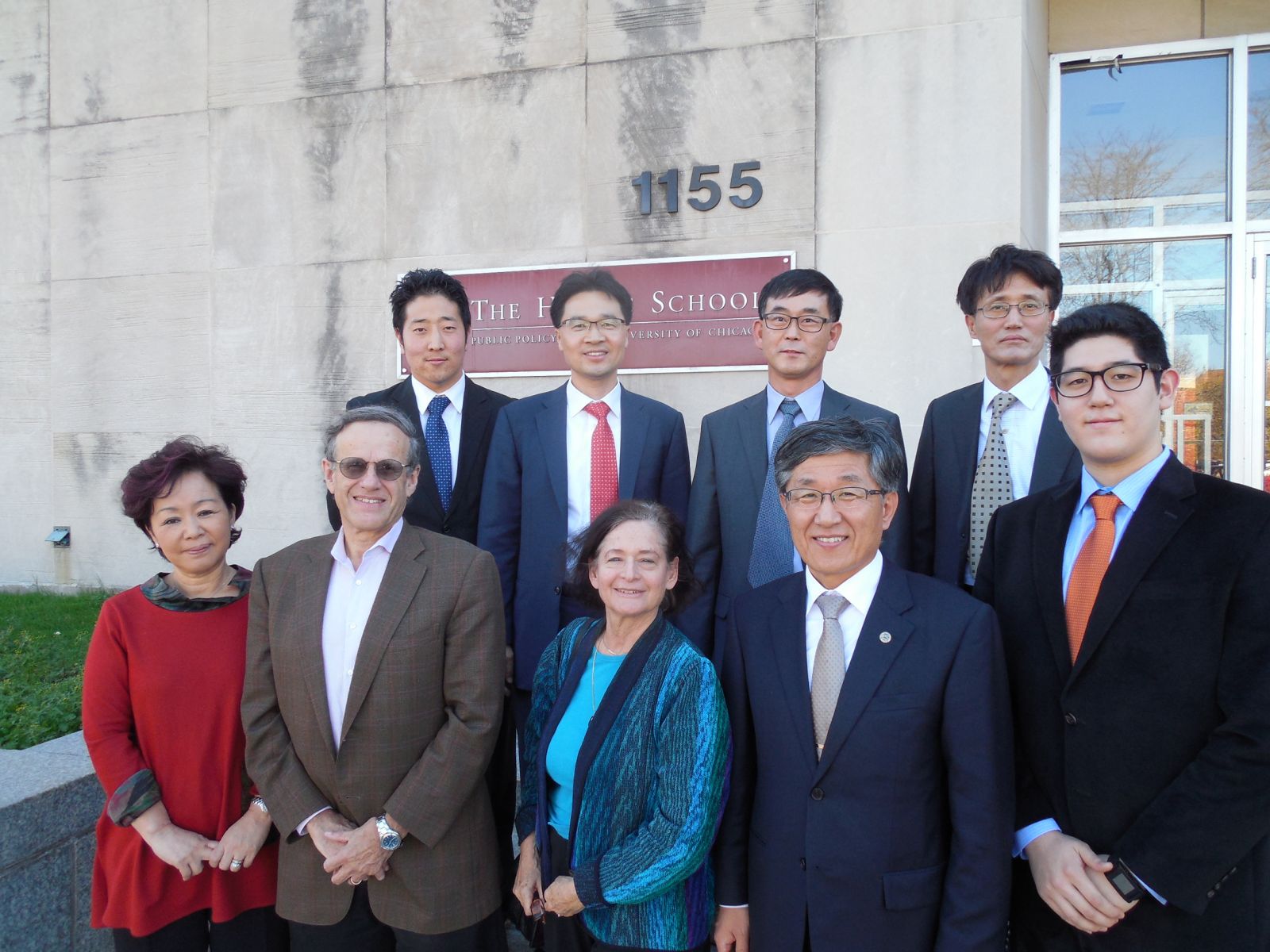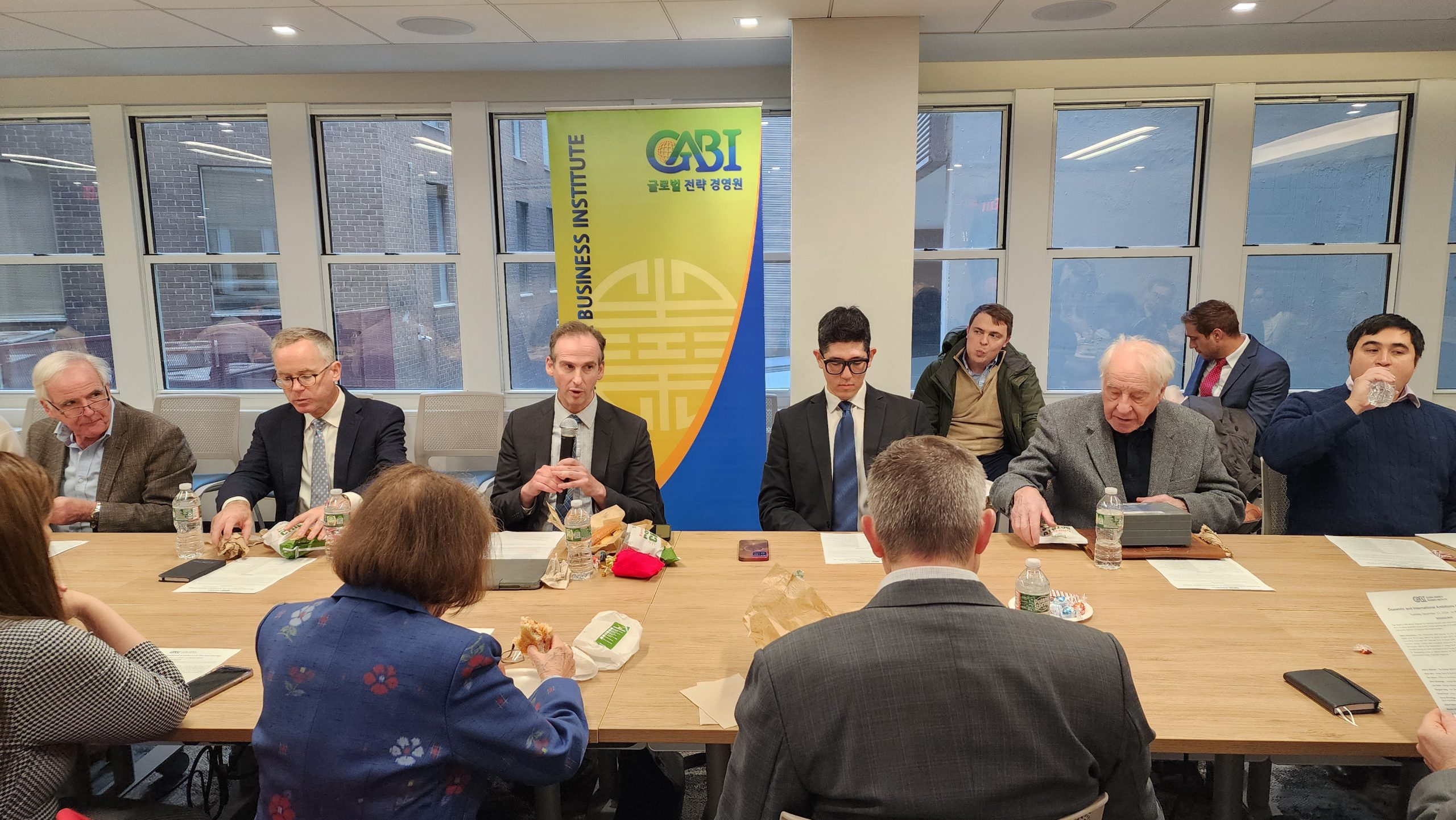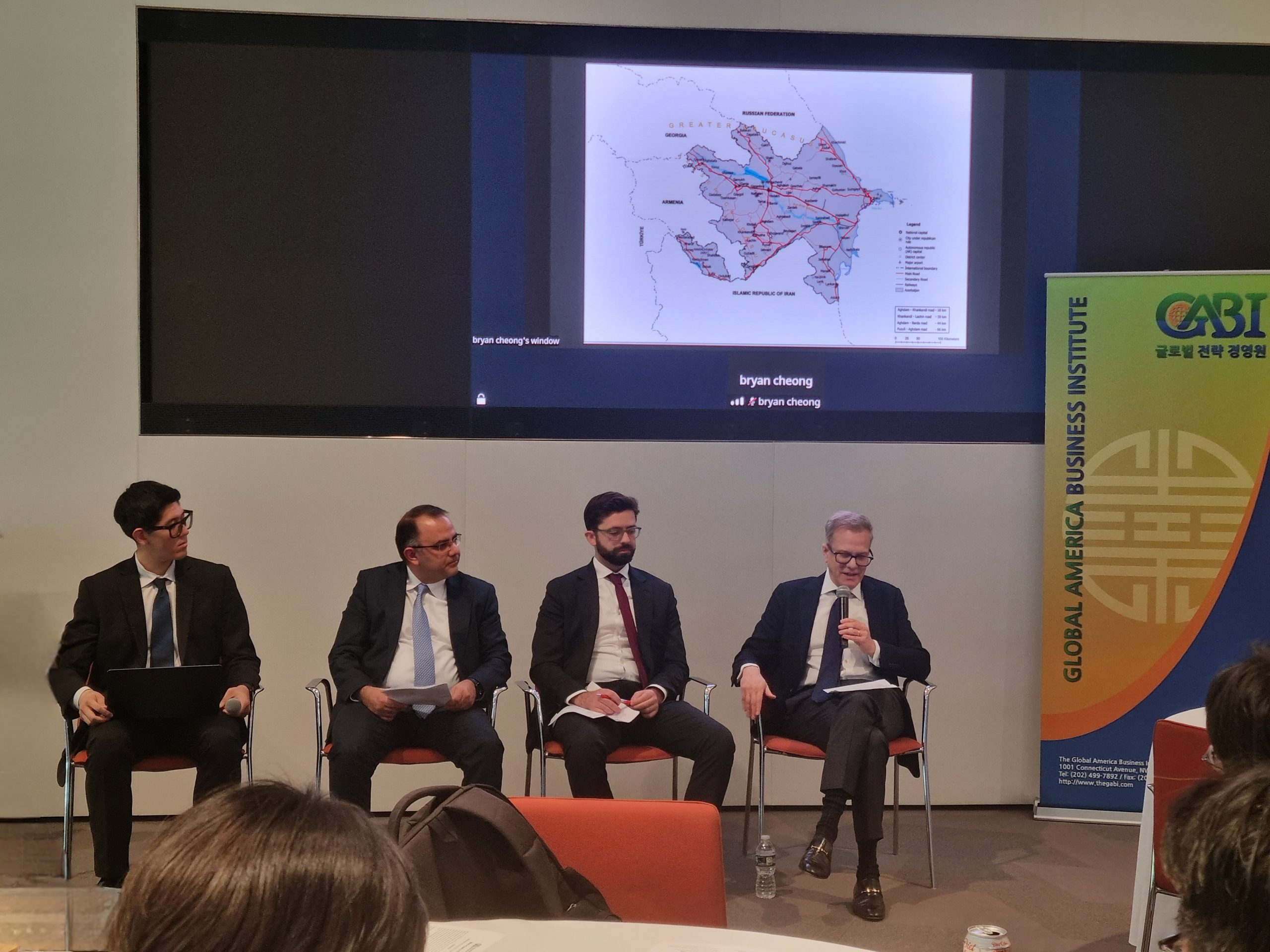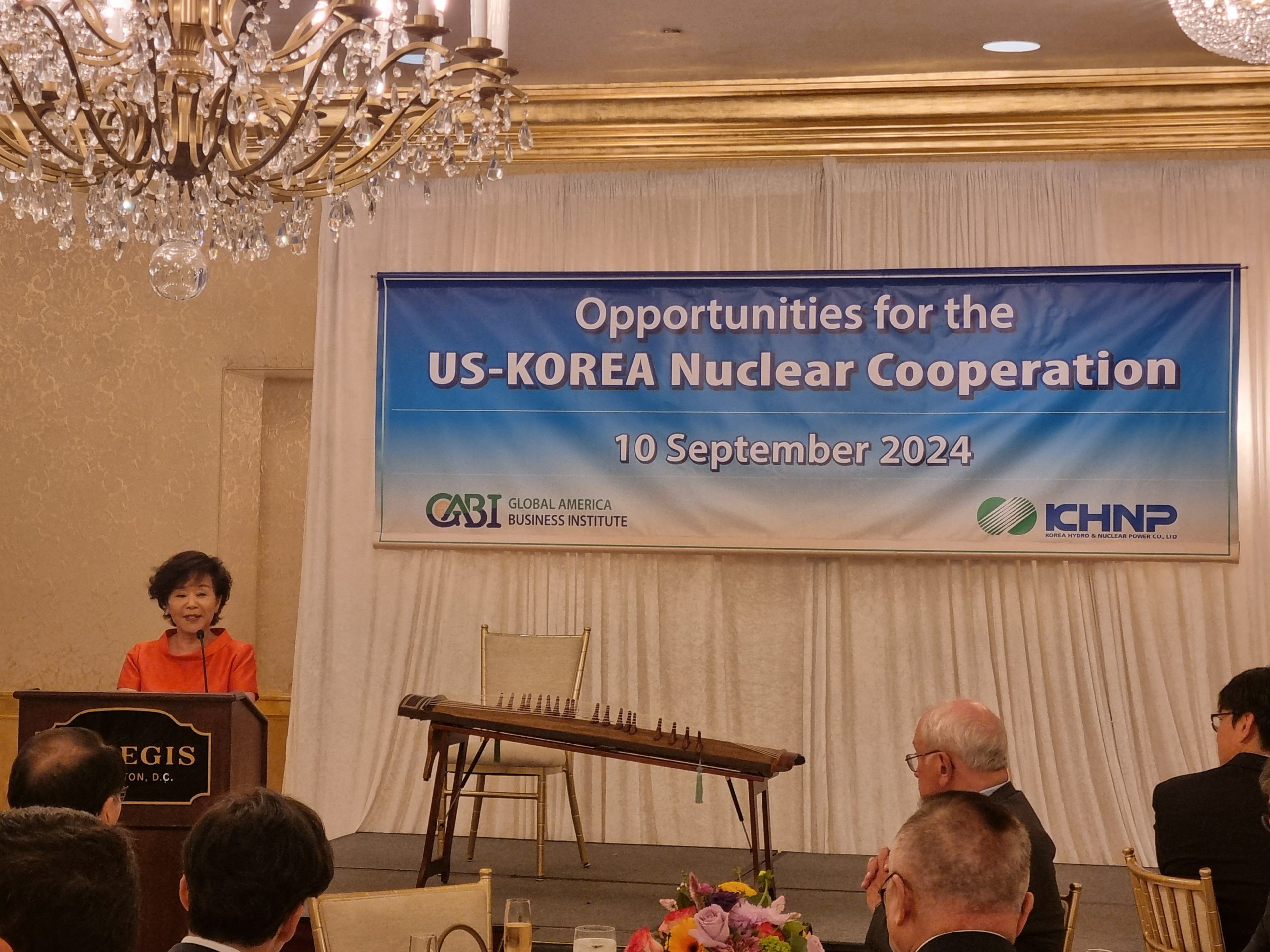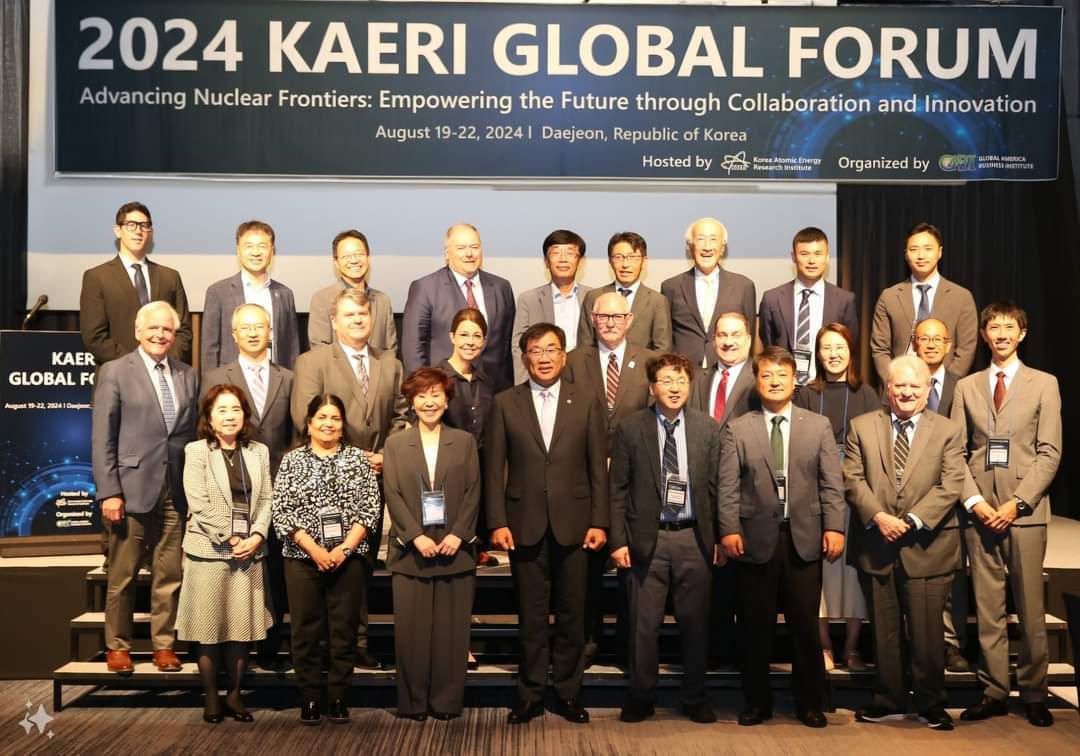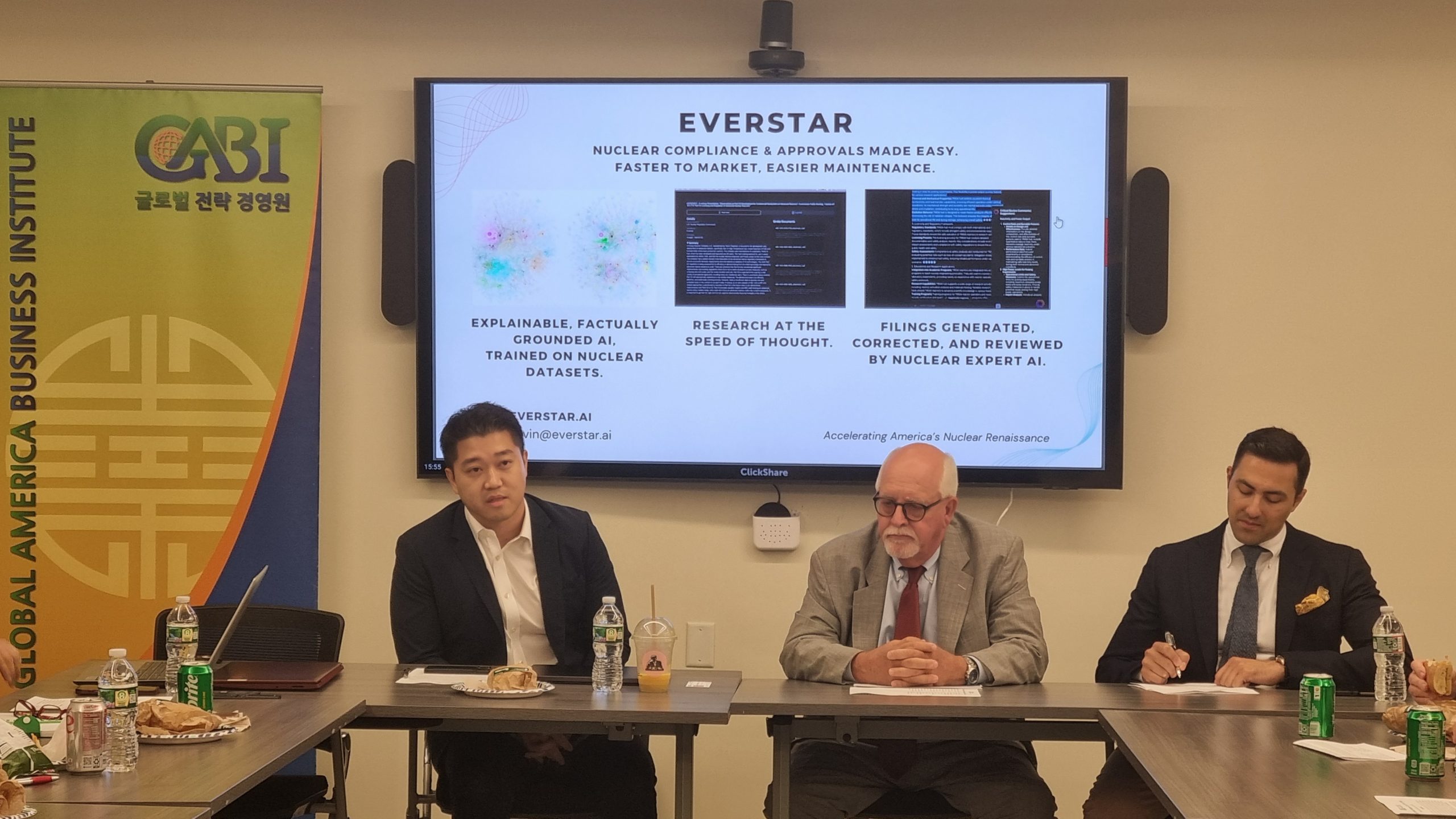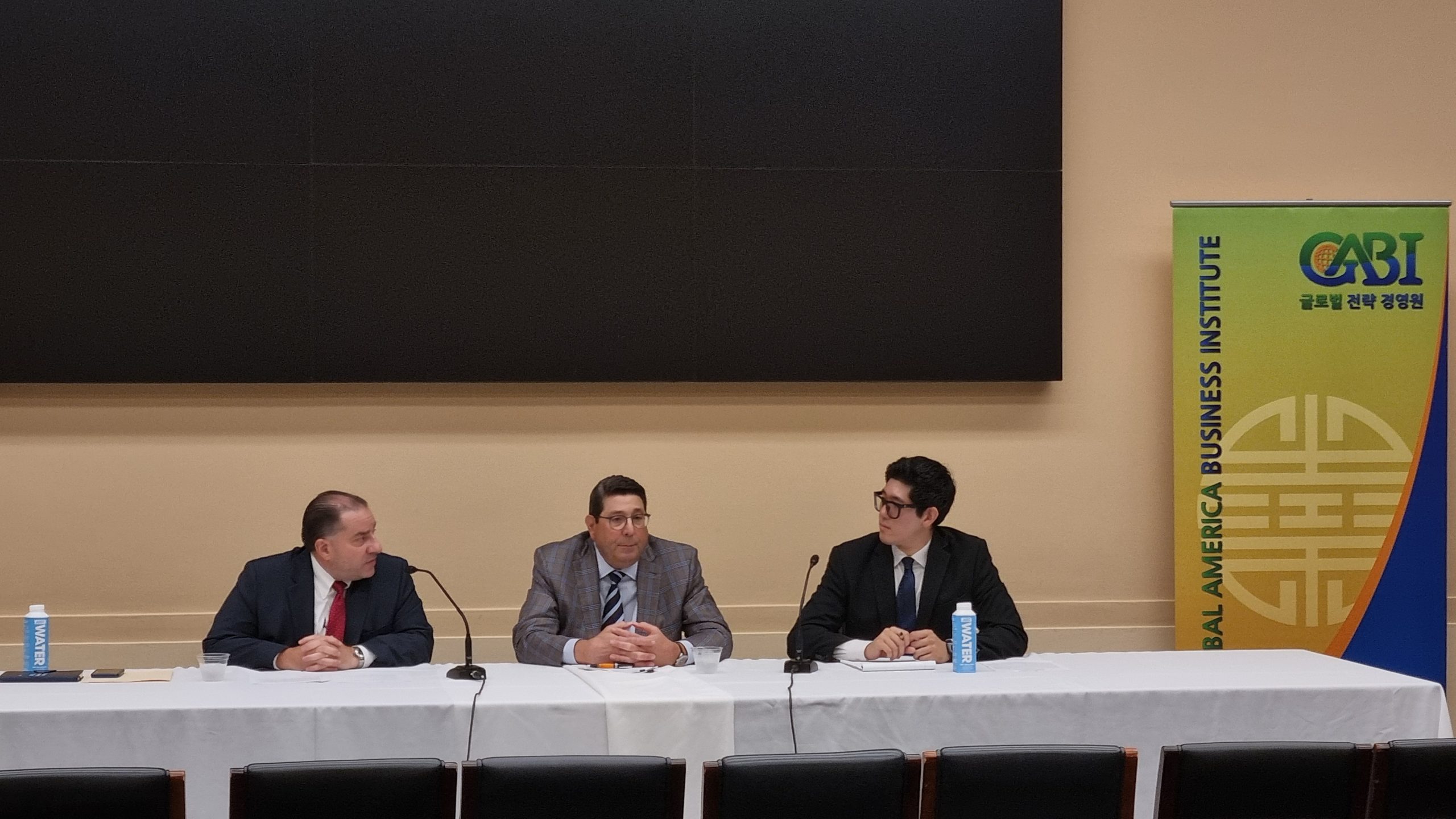With help from the Energy Policy Institute of Chicago (EPIC), GABI organized a seminar for students and faculty at the University of Chicago on the development of advanced nuclear energy technologies in Korea. The seminar was moderated by Professor Robert Rosner, Founding Co-Director of EPIC and Professor of Astronomy & Astrophysics and Physics at the University of Chicago, and featured presentations by Korea Atomic Energy Research Institute (KAERI) representatives, Dr. Kwang-Seok Lee (Director, Center for ROK-US Nuclear Cooperation) and Dr. Younggyun Kim (Director, Sodium Fast Reactor Development Agency).
Given Korea’s extreme scarcity of energy resources—the country imports 97 percent of its energy from abroad—nuclear energy is an imperative rather than an option. However, the country’s small land area and high population density creates significant challenges for the management of spent nuclear fuel. These challenges have forced Korea to seek more innovative solutions in terms of nuclear energy technologies. One option that is receiving considerable attention in Korea is the introduction of sodium fast reactors (SFR) with pyroprocessing, which would address the issue of long-lived actinides in spent fuel and thus reduce the volume, heat, radioactivity, and storage period of nuclear waste.
The SFR would also bring significant benefits in terms of safety and resource efficiency, both important factors for Korea. Fast reactors dramatically improve uranium utilization and thus extract vastly more energy out of available uranium resources, a potentially tremendous boon for a resource-poor country like Korea. Moreover, the Prototype Gen-IV Sodium Fast Reactor (PGSFR), currently in joint development between KAERI and Argonne National Laboratory (ANL), has inherent passive safety benefits over conventional light water reactors. Reportedly, the PGSFR has a 72-hour window without any operator action in an accident scenario, a characteristic that is primarily derived from the reactor’s sodium coolant and metallic fuel. For the abovementioned reasons, pyro-SFR technology has the potential to provide powerful solutions to Korea’s most vital nuclear energy concerns.






